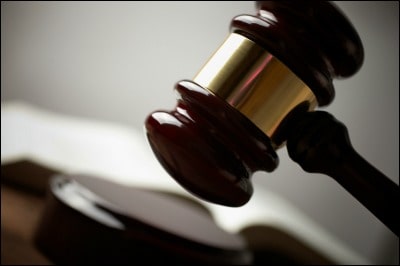 For many people the first time they need the assistance of counsel is when there are issues in their relationship. An unfortunate consequence of relationships ending is sometimes domestic violence. In Virginia, persons who experience domestic violence or have a reasonable fear of domestic violence can seek civil protective orders and sometimes the alleged abuser can be criminally prosecuted. This overlap of civil protective orders and criminal charges has important consequences for how these cases are handled in Virginia.
For many people the first time they need the assistance of counsel is when there are issues in their relationship. An unfortunate consequence of relationships ending is sometimes domestic violence. In Virginia, persons who experience domestic violence or have a reasonable fear of domestic violence can seek civil protective orders and sometimes the alleged abuser can be criminally prosecuted. This overlap of civil protective orders and criminal charges has important consequences for how these cases are handled in Virginia.
There are three types of civil protective orders in Virginia: (1) emergency protective orders, (2) preliminary protective orders and (3) permanent protective orders.
An emergency protective order under Virginia Code Section 16.1-253.4 may prohibit the abuser from contacting the victim, entering the victim’s home or apartment (even if shared), or abusing the victim in the future. Typically, it is obtained through the police officer(s) who respond to the scene. The officers can request the order from a judge or magistrate by telephone or in person. A magistrate is a court official having the authority to issue emergency protective orders and bring criminal charges for acts of violence based on the sworn testimony of the victim, other individuals, or a law enforcement officer. A victim may also seek an emergency protective order directly from the magistrate at the sheriff’s office or police station. The emergency protective order lasts until 11:59 p.m. on the third day after it was issued, unless that day is a day that the court is not in session. In that case, the order will be extended until the next business day that the court is open. The emergency protective order must be served on the alleged abuser. When seeking an emergency protective order, the magistrate could issue criminal charges against the alleged abuser. The typical charges include, but are not limited to, assault and battery.
A preliminary protective order under Virginia Code Section 16.1-253.1 is available after the expiration of the emergency protective order and generally lasts up to fifteen days. Like an emergency protective order, a preliminary protective order may prohibit the abuser from contacting the victim, entering the home or apartment, or attempting to cause the victim further harm. The preliminary protective order must be obtained through the Juvenile and Domestic Relations District Court. Most victims do not obtain an attorney for this process; however, attorneys can attend. Although the protective order is requested in the courthouse, there is no formal proceeding. The victim signs a sworn affidavit describing the incident, the judge reviews it, and the protective order is entered. This is an ex parte proceeding, meaning the accused does not receive notice of the proceeding.
A permanent protective order under Virginia Code Section 16.1-279.1 is the proceeding in which most people retain counsel. Whether seeking a permanent protective order or defending yourself against a permanent protective order, engaging the services of an experienced attorney is crucial. A permanent protective order can be issued for up to two (2) years and can have far-reaching effects. Like the other two types of protective orders, a permanent protective order may prohibit the abuser from contacting the victim, entering the home or apartment, or attempting to cause the victim further harm. Additionally, a permanent protective order may also require the abuser to provide housing, financial support, or temporary use of a motor vehicle, and the court can rule on temporary custody and visitation of any minor children. Both parties to the permanent protective order should be cautious when testifying. Any testimony given under oath at a protective order hearing can be used against either party at any criminal hearing or during divorce proceedings.
If criminal charges are filed in relation to the underlying incident of the protective order, then the accused should not testify at the permanent protective order hearing unless the criminal charge has been resolved. Typically, although it can vary from county to county, the preliminary protective order is continued until the date of the criminal trial or shortly thereafter. This ensures that neither party, in particular the alleged abuser, incriminates themselves. After the criminal trial is resolved, the Court then considers the need for a permanent protective order. Often times, the civil protective order hearing is heard directly after the criminal trial. This is done because both hearings are based on the same underlying incident of abuse and generally require the same evidence.
If you have been a victim of domestic violence or are charged with alleged abuse, please seek counsel. To best protect your interests, look for an attorney or law firm experienced with both aspects of domestic violence allegations: protective orders and criminal charges. Livesay & Myers, P.C. has teams of both family law attorneys and criminal attorneys, working together to help our clients navigate the intersecting areas of criminal charges and civil protective orders. We represent clients in Fairfax, Alexandria, Arlington, Manassas, Prince William County, Stafford, Spotsylvania, Fredericksburg and surrounding areas. If you are involved with a protective order or criminal case in Northern Virginia, contact us to schedule a consultation today.
